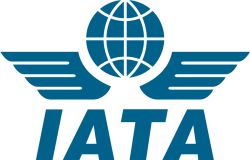 Celine Canu, Head Aviation Facilitation, International Air Transport Association (IATA) , Canada
Celine Canu, Head Aviation Facilitation, International Air Transport Association (IATA) , Canada
Day 3 - 22 March
Session: Aviation Security, Border Control & Facilitation
12:25 - 12:55 - How to secure and facilitate borders – a regulator's perspective
Synopsis: The presentation will share the different initiatives and co-operative projects that are being carried out by regulators in cooperation with relevant stakeholders. Customs and aviation together with relevant stakeholders are working to identify and mitigate ‘bomb in the box’ from being loaded onto aircraft, and at the same time to ensure identification of high-risk passengers to prevent them boarding flights. In addition, regulators are working closely together to avoid duplication and close the gaps, not only to secure the borders but also to provide facilitation.
Audience will learn:
- What Customs is doing to secure borders
- Cooperation between WCO, ICAO and IATA to overcome aviation threat
- What the authorities are doing with API/PNR
- What authorities are doing with Pre-Loading Advance Cargo Information (PLACI)
- How Customs and aviation are providing joint training for aviation and Customs authorities
Day 3 - 22 March
Session: Aviation Security, Border Control & Facilitation
11:55 - 12:25 - Optimising passenger data transmission to enhance aviation security
Synopsis: Aviation security has long focused on preventing the introduction of prohibited items in the security restricted areas as opposed to trying to identify potential perpetrators, which has long been an impossible exercise. The modernisation of passenger data transmission is a key factor to enhance the early identification of high-risk passengers.
Audience will learn:
- What is passenger data and how to use API efficiently
- How the introduction of biometric recognition can enhance aviation security and border protection
- Promoting public-private partnerships is key to avoid gaps and duplication